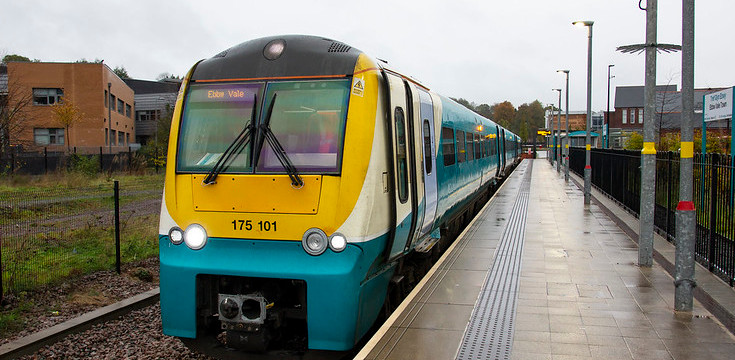Today’s Senedd roundup: Government steps up no deal Brexit planning

Owen Donovan, Senedd Home
Nearly all of yesterday’s plenary session was turned over to Welsh Government ministers for them to update AMs on preparations for a “No Deal Brexit”, which is set to happen on October 31st 2019.
A similar series of statements were issued during January 2019 in preparation for a March Brexit day but, of course, that didn’t happen.
“In January, when we provided Assembly Members with an in-depth review of our ‘no deal’ preparations, I’m sure none of us would have imagined that the political situation in the UK, and the constitutional situation, would be in such turmoil. In his first two months in power, Boris Johnson has lost seven major votes in the Commons, lost his working majority, broken the law by trying to suspend Parliament, and has misled the monarch.”
– Counsel General & Brexit Minister, Jeremy Miles (Lab, Neath)
Brexit Minister & Counsel General, Jeremy Miles: Update on the UK Government’s proposals for the UK’s exit from the EU
What are the main issues?
While there’s a UK Act in place (aka. Benn Act) which is supposed to prevent a “No Deal” happening, it’s unclear whether Boris Johnson intends to comply with it. It seems unlikely that an agreement can be reached with the EU before October 19th (when the Benn Act is supposed to come into effect).
What does the Minister intend to do to prepare?
The Welsh Government will continue to work in good faith with the UK Government to mitigate any possible negative impacts resulting from a “No Deal” – but the UK Government needs to be more willing to share information, as Welsh Ministers have been locked out of some “No Deal” meetings. The Welsh Government will be holding meetings with key stakeholders over the coming days to stress the importance of No Deal preparations.
Environment, Energy & Rural Affairs Minister, Lesley Griffiths (Lab, Wrexham): Preparing the rural economy and fisheries sector for a “No Deal Brexit”
What are the main issues?
Brexit will introduce bureaucracy where none currently exists and could result in delays and additional costs to businesses. There may be a reduction in EU-sourced foods, but supermarkets have offered assurances that stores will be supplied “fairly” regardless of whether they’re in an urban or rural area. Tariffs will make it difficult for Welsh lamb to compete in the EU market.
What does the Minister intend to do to prepare?
The Minister is confident that an “operational system” in the food and fisheries sectors is ready to work from day one of Brexit. A loan scheme will pay up to 90% of unvalidated basic payment claims. All current legislative environmental safeguards will remain in place. “Intensive work” was underway to ensure vulnerable sectors (like Welsh lamb farming) won’t be severely damaged after Brexit, but this is dependent on UK Government funding. An extra 90 vets have been taken on to work on animal health certification.
Health Minister, Vaughan Gething (Lab, Cardiff S. & Penarth): Preparing health and care services for a “No Deal Brexit”
What are the main issues?
The Minister is pressing for assurances from London on the flow of goods and settled status for EU citizens (particularly those working in health and social care). There’s already been a reduction in overseas health and social care recruitment. An earnings threshold of £30,000 for new immigrants after Brexit would be “disastrous” for social care where average earnings are £17,000.
What does the Minister intend to do to prepare?
At least £11 million has been spent on stockpiling of essential supplies and there are arrangements in place to monitor medicine stocks with a UK-wide system in place to deal with any potential shortages (East Midlands Airport being a hub for medical supplies, though it may be too far away for supplies with short shelf lives like radioisotopes). The Minister has asked the health and care sector to consider how to deliver meals in the event of food supply issues without compromising nutritional standards.
Local Government & Housing Minister, Julie James (Lab, Swansea West): Preparing our public services for a “No Deal Brexit”
What are the main issues?
Disruptions to imports may impact food supplies to schools and council-run care homes. There have been increased community tensions and an increase in reported hate crimes.
What does the Minister intend to do to prepare?
£50 million has been allocated to the housing sector to mitigate against a “No Deal” and £2 million has been announced to address food poverty. Citizens Advice has been funded to support EU citizens to apply for settled status. Four local resilience forums have identified local risks and the Welsh Government has fully co-operated with UK Government “Yellowhammer” plans.

Here’s a summary of this afternoon’s questions to Economy & Transport Minister, Ken Skates (Lab, Clwyd South).
Reliable rail?
With high-profile issues on Welsh rail services making headlines in the last few weeks (namely a lack of carriages), Shadow Economy Minister, Russell George AM (Con, Montgomery), expressed his, and rail passengers’, frustration. Aspirations are all well and good, but people expect and deserve a reliable rail service now.
Transport for Wales’ performance over the summer was poor; only 61% of trains on the Cambrian Line arrive on time. With autumn coming, how confident was the Minister that there would be no repeat of last year’s chaos?
The Minister accepted that rail services aren’t without faults but this was a legacy resulting from years of under-investment – signalling equipment was blamed for Cambrian punctuality problems, which is Network Rail’s responsibility. An £800million order for new trains and tram-trains has been put in which will deal with capacity problems in the longer term.
He was also confident that there’ll be no repeat of last year’s “wheel-flat” problem which saw scores of trains taken out of action:
“I’m pleased to be able to say to Members today that those trains that were not fitted with wheel-side protection kits last year, which were not operating as a consequence of that or which did suffer from wheel-side protection, now have that vital kit applied to them.”
– Economy & Transport Minister, Ken Skates
Industry 4.0
Rhun ap Iorwerth AM (Plaid, Ynys Môn) focused on a recently-published report on the fourth industrial revolution, with a clear warning on the possible impact of automation:
“….too many Welsh companies are locked into low-value parts of worldwide chains and that there’s little scope for higher-value roles in areas like research and development and international procurement….the Welsh workforce, as a result, will be exposed to quality-cost competition as companies seek to automate less valuable parts of their chains.”
– Rhun ap Iorwerth AM
The Minister accepted that the report presents some hefty challenges for the Welsh economy. Individual learning accounts are being rolled out which will help the workforce identify skills gaps and apply for financial help towards retraining in preparation for automation and new roles that might be created.
There are also other examples of investment in preparation for Industry 4.0 such as the Advanced Manufacturing Research Centre at Deeside, which could generate £3billion for the economy.
Brexit Party AM worried about post-Brexit tariff war
David Rowlands AM (BXP, South Wales East) said that the German economy was stagnating due to its reliance on multinational corporations and he asked whether the Minister agreed that if there was a “ludicrous tariff war” after a No Deal Brexit, Germany would come off far worse than the UK?
The Minister didn’t believe a low-growth economy was necessarily a bad thing as long as it’s sustained; in many cases it’s better than boom-and-bust. We should be more worried about the UK’s economy, not Germany’s.
David Rowlands then turned attention to the Italian economy. Following a conversation with an Italian bartender, he suggested there was growing discontent towards the EU within Italy due to a lack of well-paid jobs and commercial opportunities, which compared unfavourably to the job opportunities and pay levels in the UK.
But the Minister wasn’t so sure Italy was a good comparison:
“If we look at the Italian economy, we’ll see similar trends there as the UK. You have some high-performing regions within Italy, primarily in the north, and then you have parts of Italy that are really struggling where young, talented people feel that they have no choice but to leave, and they’re primarily in the south.”
– Economy & Transport Minister, Ken Skates

Tory spending spree to benefit Wales?
The Conservatives made many spending pledges at their autumn conference in Manchester this week. While many of the announcements directly relate to England, they may well result in a boost to Welsh Government funds through the Barnett Formula.
UK Chancellor, Sajid Javid, pledged to increase the living wage to £10.50-per-hour for over-21s by 2024 (subject to economic performance), while the UK Home Secretary, Preeti Patel, pledged to end free movement and ensure violent offenders in EnglandandWales serve at least two-thirds of their prison sentences before being released on licence. £55 million has also been earmarked for a Mid Wales Growth Deal.
The conference was somewhat overshadowed by a looming EU summit – the final one before a potential Brexit day of 31st October – as well as accusations of sexual harassment and misuse of public funds aimed at the UK Prime Minister, Boris Johnson. The Prime Minister also told ITV’s Adrian Masters that he didn’t want to devolve any more powers to Wales.
There was a big snub for the Leader of the Opposition in the Senedd, Paul Davies AM (Con, Preseli Pembs.), who wasn’t granted an opportunity to address the conference. Also, there’s no sign yet that his position as leader of the Conservatives in Wales will be clarified; at present there’s no official leader in Wales.
Performing wild animals “love the lifestyle”
Support our Nation today
For the price of a cup of coffee a month you can help us create an independent, not-for-profit, national news service for the people of Wales, by the people of Wales.





Performing wild animals love the lifestyle – is that a description of the AMs!!!!
No Deal Brexit, and possible deal with Trump? This will damage Europe in short term, but they
will pull out of it long term. We know Brexit leaders are really most fearful of the EU Tax Evasion
Regulation, and ordinary people are made to think in terms of abstract freedoms. This, in the
most monitored country in Europe……………or should one say “Not Europe”. As for US deal, Pelosi
has already warned of Dem. backlash against “UK”, should Ireland be harmed.